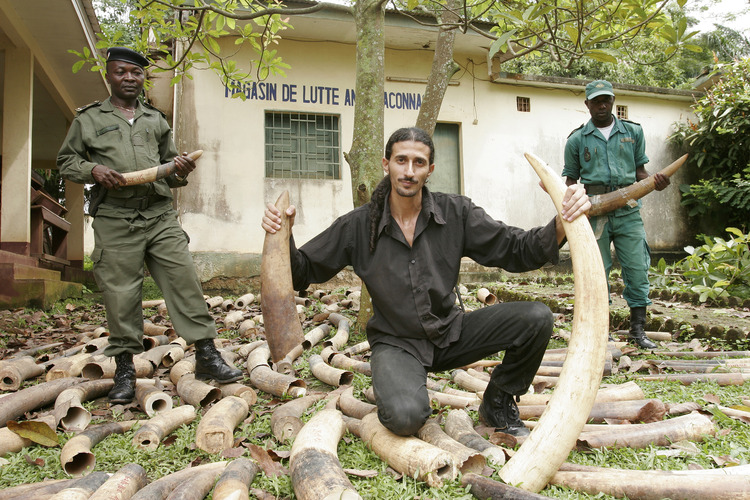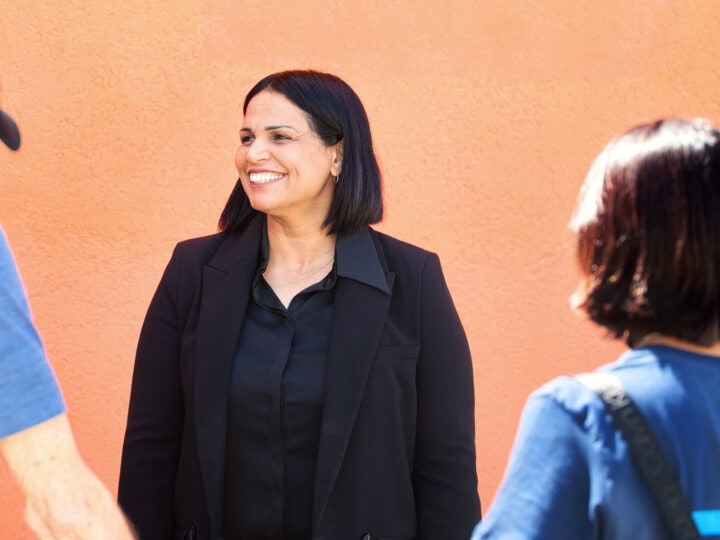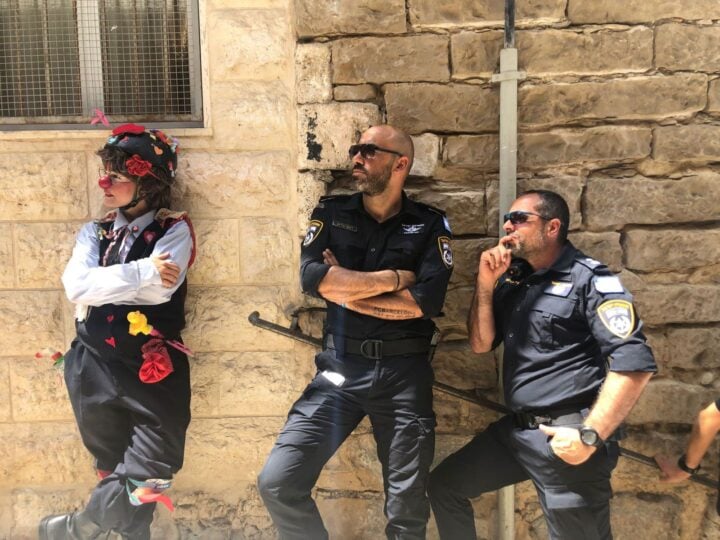Israelis have a soft spot for animals. They go to extraordinary lengths to rescue and rehabilitate helpless creatures, whether it’s stray cats and dogs, abused donkeys and horses or injured sea turtles.
Their concern even crosses borders, and sometimes into quite dangerous scenarios.
Tel Aviv native Ofir Drori got his first glimpse of the cruel underworld of wildlife trafficking when he adopted a baby chimpanzee whose mother was killed by a poacher in Cameroon.
To tackle the problem of non-enforcement of wildlife-protection laws, Drori founded the Last Great Ape Organization, the world’s first law-enforcement NGO, in 2003.
Today, Drori’s expanded EAGLE (Eco Activists for Governance and Law Enforcement) Network nonprofit employs local teams of undercover agents and legal experts in Cameroon, the Republic of Congo, Gabon, Benin, Togo, Guinea, Senegal, Uganda and Madagascar.
They set up elaborate sting operations to catch traffickers of live animals, tusks, pelts, teeth, shells and other parts provided illegally by poachers for the lucrative global trade.
“We have put more than 1,300 major traffickers behind bars to date, many of them very high public officials,” Drori, 40, tells ISRAEL21c from Nairobi.
“We now have a major wildlife trafficker arrested and imprisoned almost every day. We have a 98 percent prosecution rate because we make sure every case is airtight. We use wildlife as an entry point to fight against corruption,” he says.
Drori’s book, The Last Great Ape, tells the story of his anti-corruption crusade in Africa. He has won multiple awards for his dangerous work.
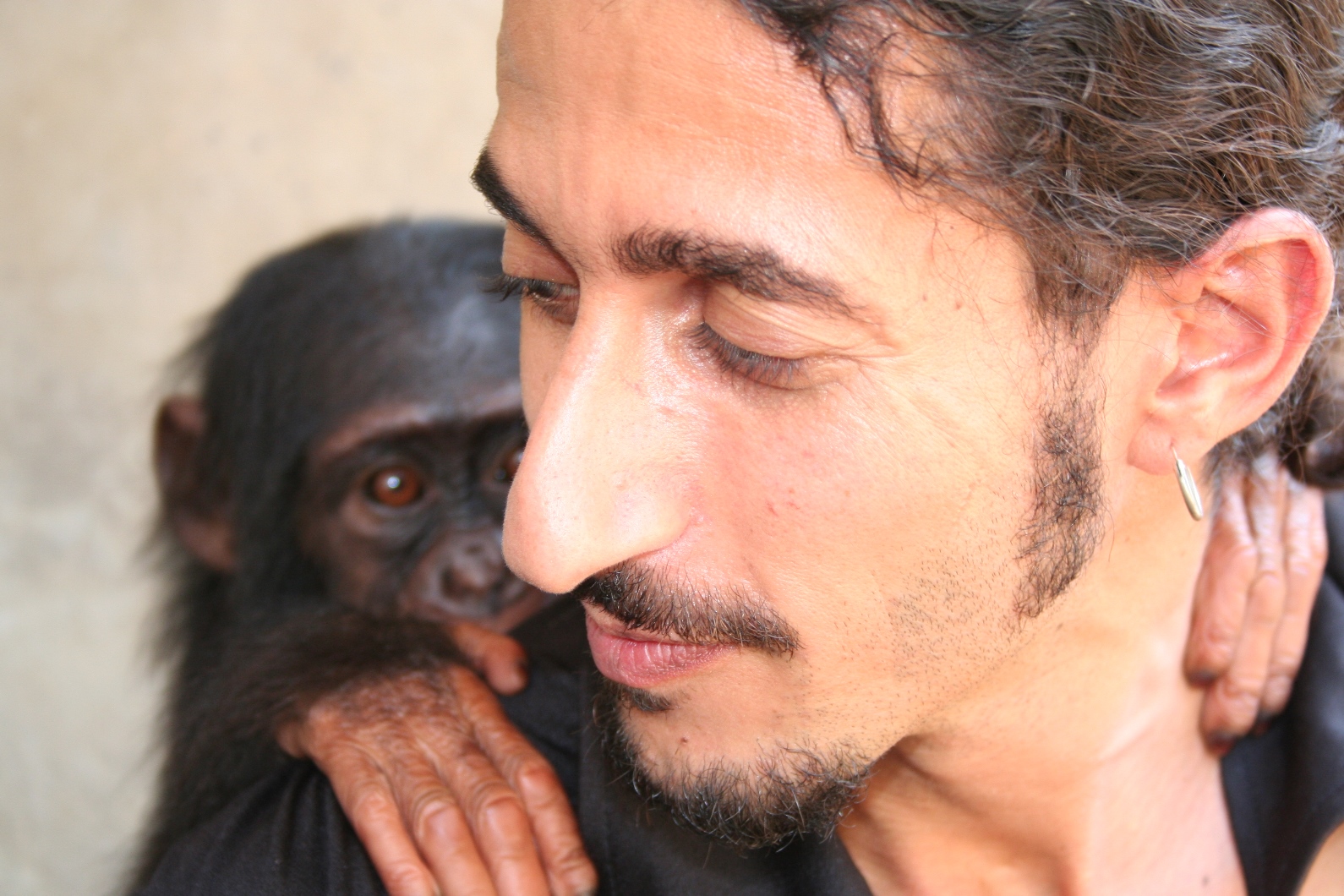
Rescuing dogs in South LA
When Eldad Hagar finished his Israeli army service, he didn’t go to Africa but to the United States. And there, in gritty South Central Los Angeles, his small nonprofit, Hope for Paws, carries out “extreme” dog rescues that no one else will risk.
Hagar’s videos of his heartrending and heartwarming saves garner millions of views on social media.
He has been bitten by frightened canines and threatened by drug dealers and gangs in the sketchy neighborhoods he and his volunteers enter to save suffering creatures.
Yet Hagar considers his biggest challenge not his safety but finding homes for every rescued dog. He insists that they not go to a kennel after discharge from the vet.
“I can’t change the world, but I can change the world of that animal,” Hagar told ISRAEL21c.
He, too, wrote a book. Our Lives Have Gone to the Dogs tells about more than 500 dogs Hagar and his wife took in over eight years. On his frequent trips home to Israel, he helps out other animal-rescue volunteers.
Saving animals in foreign zoos
In June 2015, Israel’s Ministry of Foreign Affairs sent a delegation of zookeepers and veterinarians from the Jerusalem Biblical Zoo and Ramat Gan Safari Park to Tbilisi to assist with recapturing and securing animals that escaped from the city’s zoo following flash floods in Georgia’s capital. The zoo lost more than half of its animals, including all its tigers, and most of its lions and bears when the waters destroyed the animal’s enclosures.
“When a member of one of the zoo organizations is in trouble, we do our best to help. We have a lot of experience and knowledge in this area,” Jerusalem Zoo spokeswoman Sigalit Hertz-Dvir told ISRAEL21c.
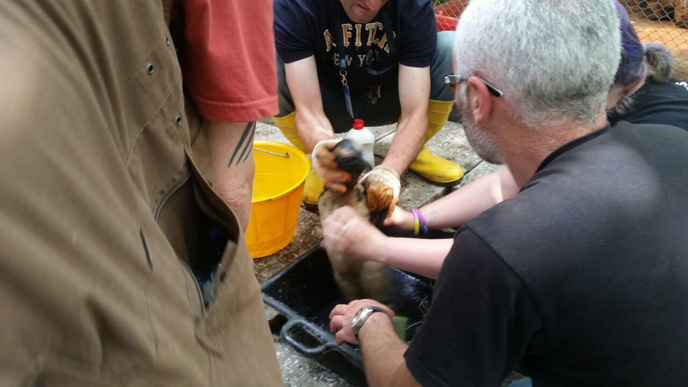
Zoo animals in Gaza were aided in 2009 by Eti Altman, cofounder of Israel’s largest animal-welfare organization, Let the Animals Live, through her dogged efforts involving government officials and Palestinian and international groups such as Veterinary World Service.
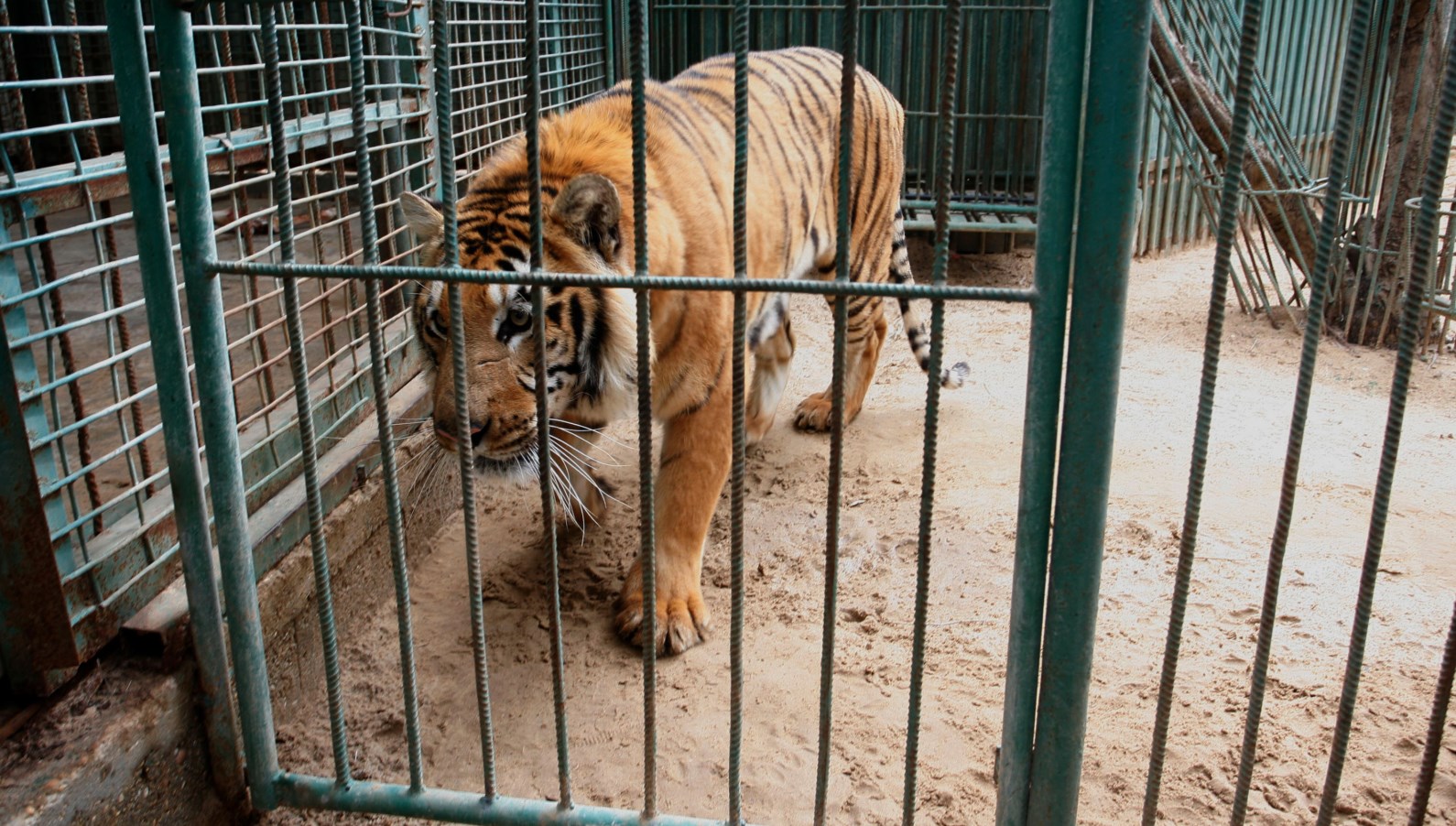
Due to her persistence in reaching Gazan officials, 30 truckloads of oats, hay and veterinary supplies were transferred from Israel into Gaza over a period of weeks.
In August 2016, a tiger, five monkeys, two ostriches, two gazelles, two tortoises, a swan and a porcupine were transferred out of the Gaza Strip to receive better living conditions and improved care.
The complex operation was initiated by UK-based charity Four Paws and was organized by the Israeli Agriculture and Rural Development Ministry’s Gaza Coordination and Liaison Office, the Coordinator of Government Activities in the Territories (COGAT), the Israel Nature and Parks Authority, the Defense Ministry Crossings Authority and the Gaza Ministry of Agriculture.
These last remaining creatures in the Khan Yunis Zoo were sent to zoos in South Africa and Jordan as well as the Ben Shemen Monkey Park and the Ramat Gan Safari in Israel.
“Given the less than satisfactory conditions and in the absence of the ability to continue caring for the animals at the Khan Yunis zoo, the Agriculture and Rural Development Ministry assisted and coordinated the transfer of the animals to zoos in Israel and around the world,” said Uri Madar of the Agriculture Ministry Gaza Coordination and Liaison Office.
“Over the last two years, the ministry transferred lions, a horse and other animals. Our veterinary services have been continually active and are devoted to the welfare and health of the animals. We are delighted and moved every time we are able to be of assistance in saving the lives of animals.”
Click here to view the exhibition My Name is Israel.




